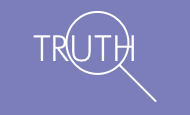NGO Monitor research featured in Sunday Times: "Nazi Scandal engulfs Human Rights Watch"
For over seven years, NGO Monitor has published systematic research reports analyzing Human Rights Watch’s disproportionate agenda, lack of credibility and anti-Israel bias. These pioneering reports have weakened the “halo effect” that protected HRW and similar NGOs from systematic examination.
The March 28, 2010 Sunday Times (UK) publication of “Nazi Scandal engulfs Human Rights Watch” by Jonathan Foreman marks another step in this process. Many of the examples in this article are based on NGO Monitor’s research, including HRW’s disproportionate focus on Israel, inconsistencies and lack of credibility in the organization’s “research”, and the ideological bias of HRW’s Middle East staff. Details are available in NGO Monitor’s 2009 monograph, “Experts or Ideologues: Systematic Analysis of Human Rights Watch.”
As noted by NGO Monitor and Foreman, Marc Garlasco’s Nazi memorabilia obsession, as exposed by Omri Ceren, is symptomatic of far deeper problems. Garlasco was HRW’s “senior military analyst” from 2003 through September 2009. Unfortunately, Foreman was unable to provide any answers to questions on Garlasco’s qualifications as a weapons analyst. Similarly, there is no information on the relationship between Garlasco and Executive Director Kenneth Roth, or Judge Richard Goldstone, an HRW board-member for many years, whose UN report closely reflects HRW’s shoddy methodology and biased allegations.
The lack of transparency and culture of duplicity are evident in the extreme measures taken by HRW to block release of information on Garlasco’s relationship with other staff members, or on the manipulation of repords which he wrote or co-authored alleging Israeli “war crimes”. (HRW suddenly removed Garlasco’s name from its website and announced his retroactive dismissal following NGO Monitor’s March 5 statement, which triggered inquiries from the Jerusalem Post mentioned in the Sunday Times article.) As shown in NGO Monitor’s analysis, the changing claims in Garlasco’s reports on the 2006 “Gaza beach incident” are particularly glaring.
As Foreman notes, before HRW’s Emma Daly turned Garlasco into a “non-person”, officials vehemently defended him, and sought to discredit research reports from NGO Monitor’s and other sources. In an act of desperation, Programmes Director Iain Levine falsely accused the Israeli government of leading this investigation.
Beyond Garlasco, NGO Monitor’s analysis details an agenda which disproportionately targets Israel, while giving little emphasis to human rights violations elsewhere, including massive post-election repression in Iran. The exposure of HRW’s Saudi fundraising dinner fiasco, and the biased backgrounds of the heads of the Middle East and North Africa division, increase the damage. Taken together, these failures led to founder Robert Bernstein’s public denunciation of his own organization as having lost its moral compass in turning Israel into a pariah state.
On this basis, James Hoge, who is taking over as head of HRW’s board, faces a very important task. To restore HRW’s role as a leader in promoting universal human rights, Hoge will need to deal with each of these failures, and the top officials who are responsible for the moral collapse. Several key quotes from the Foreman article:
- “I interviewed a human-rights expert at a competing organisation in Washington… He told me he was “not surprised” that HRW has still not produced a report on the violence in Iran: “Their hearts are not in it. Let’s face it, the thing that really excites them is Israel.””
(As shown in NGO Monitor’s report, “Obsession and Scandals: HRW in 2009“, HRW publications on “Israel and the OPT” comprised 28 percent of its total Mideast output in 2009.)
- “Associates of Garlasco have told me that there had long been tensions between Garlasco and HRW’s Middle East Division in New York – perhaps because he sometimes stuck his neck out and did not follow the HRW line. Garlasco himself apparently resented what he felt was pressure to sex up claims of Israeli violations of laws of war in Gaza and Lebanon, or to stick by initial assessments even when they turned out to be incorrect.”
(See NGO Monitor, “Unanswered Questions: Garlasco and HRW’s Israel Campaigns“, particularly on the Gaza beach incident and the Razing Rafah report.)
- “While it may be hard to find people who are genuinely neutral about Middle East politics, theoretically an organisation like HRW would not select as its researchers people who are so evidently on one side.”
NGO Monitor provided a detailed examination of the professional backgrounds, research expertise, and ideological bias concerning Israel of the staff in HRW’s Middle East division, particularly Joe Stork and Sarah Leah Whitson.
- “Why put such effort into publicising alleged human-rights violations in some countries but not others? Why does HRW seem so credulous of civilian witnesses in places like Gaza and Afghanistan but so sceptical of anyone in a uniform?”
Until HRW officials end this fully documented and systematic bias, the organization will lose any remaining moral suasion and credibility, particularly on issues related to the Middle East.



